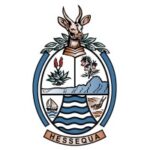Website Eastern Cape Department of Agriculture
The Eastern Cape Department of Agriculture, officially known as the Department of Rural Development and Agrarian Reform (DRDAR), is the government body responsible for promoting and supporting agriculture and rural development within the Eastern Cape province of South Africa.
The Eastern Cape Department of Agriculture is offering bursary opportunities for the 2026 academic year, aimed at supporting deserving students who wish to pursue careers in the agricultural sector.
This bursary programme is designed to empower young South Africans—particularly those from disadvantaged backgrounds—by funding their tertiary education in critical and scarce skills fields relevant to the province’s agricultural development.
Fields of Study Covered
Bursaries will be awarded for undergraduate studies in the following fields:
- Agricultural Engineering / Bio-Resource Engineering (BSc Degree)
- Veterinary Technology (BHSc Degree)
What the Bursary Covers
The Eastern Cape Department of Agriculture Bursary provides comprehensive financial support covering the following expenses:
- Registration fees
- Tuition fees
- Accommodation
- Meals
- Prescribed textbooks
Note: The bursary does not cover historical debt or outstanding fees.
Service Contract
Successful applicants will be required to serve the Eastern Cape Department of Agriculture after completing their studies.
The service period will be equal to the number of years the bursary was awarded.
Eligibility Requirements
Applicants must meet the following minimum entry criteria before applying (failure to do so will result in disqualification):
- Must be a South African citizen.
- Must be currently in Matric or have completed Matric / NCV.
- Must have completed the following subjects in Matric:
- For Agricultural Engineering / Bio-Resource Engineering: Mathematics and Physical Science.
- For Veterinary Technology: Life Sciences, Physical Science, and Mathematics.
- Must be studying or intending to study towards one of the qualifications listed above.
- Must be studying or intending to study at a registered Higher Education Institution in South Africa.
- Must be unemployed.
- Must be financially needy, with:
- A total household income not exceeding R350 000 per annum, OR
- Not more than R600 000 if living with a disability.
- Preference will be given to youth residing in the Eastern Cape, who are unemployed and from historically disadvantaged backgrounds.
- However, students from outside the province may also apply.
Required Supporting Documents
Applicants must attach certified copies of the following supporting documents with their application form (documents older than 3 months will not be accepted):
- South African ID document (certified copy).
- Latest Matric / NCV results (if currently in Matric).
- Matric / NCV certificate (if already completed).
- Full academic record, if currently studying at tertiary level.
- Proof of admission / provisional admission / registration from a recognised higher education institution.
- Proof of residence from a local municipality (not older than 3 months).
- Proof of combined household income (latest payslips if employed, affidavit if unemployed, proof of social grant if applicable).
- Parents’ or guardians’ ID documents (certified copies).
- Proof of other bursaries or sponsorships, if applicable.
- Applicants living with disabilities are encouraged to attach relevant medical documentation.
How to Apply
- Download the application form:
Download EC Department of Agriculture Bursary Application Form 2026 (PDF) - Submit your completed form and all required documents via email to:
📧 bursary@ecagriculture.gov.za Email Subject Line: DOA Bursary 2026
Note:
- Applications submitted via fax or hand delivery will NOT be accepted.
- Incomplete applications will not be considered.
Key Dates
- Closing Date: 10 November 2025
- Selection Process: Only shortlisted candidates will be contacted.
Preference
The Department encourages applications from:
- Youth residing in the Eastern Cape.
- Unemployed individuals from historically disadvantaged groups.
- Learners with disabilities who meet the entry criteria.


